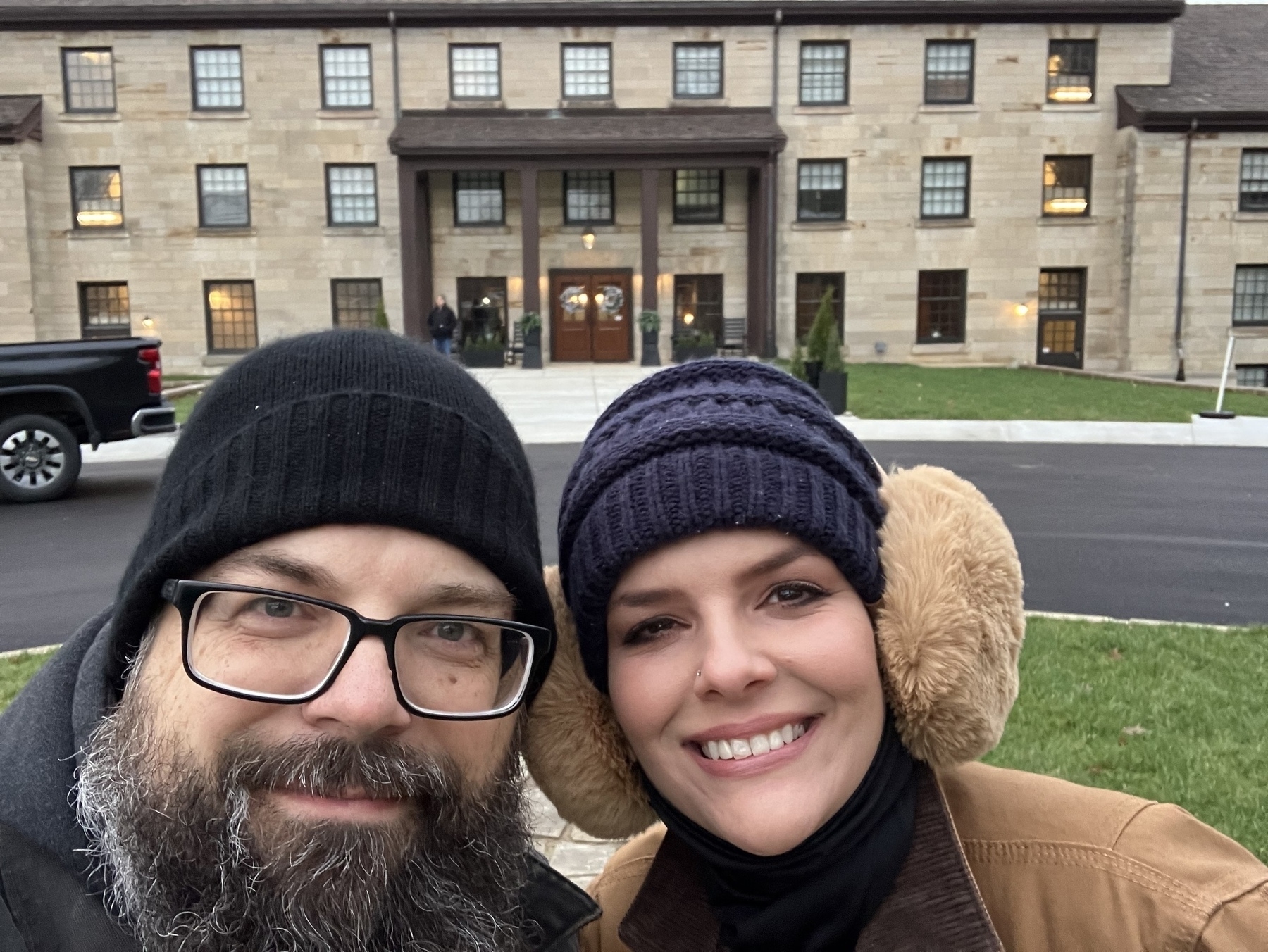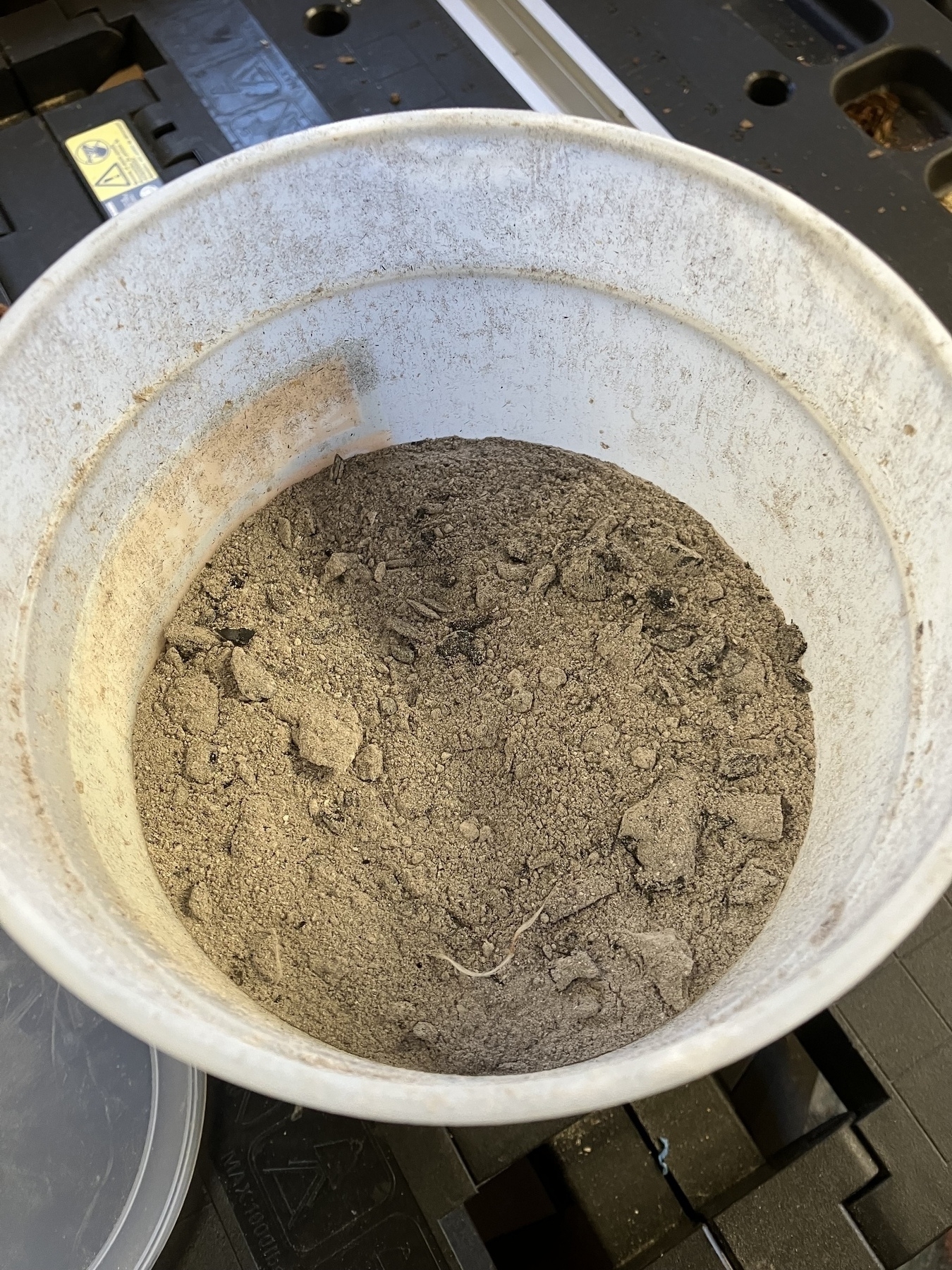First Day Hike at Spring Mill state park.

First Day Hike at Spring Mill state park.

I’m glad to have encountered Lewis Mumford’s phrase “life cannot be delegated.” I’m also glad for the way L.M. Sacasas invokes Illich to relativize an idea that could become overly rigid–because, of course, a great deal of our work is delegated:
The principle “Life cannot be delegated” is simply a guidepost. It keeps before us the possibility that we might, if we are not careful, delegate away a form of life that is full and whole, rewarding and meaningful. We ought to be especially careful in the cases where what we delegate to a device, app, agent, or system is an aspect of how we express care, cultivate skill, relate to one another, make moral judgments, or assume responsibility for our actions in the world—the very things, in other words, that make life meaningful.
Any recommendations for reduction in blue light exposure? I wear prescription glasses but I think adding those flip down lenses to my existing glasses would look a bit goofy. I’ve switched my laptop and phone to night mode all the time. I will likely attach a filter to my laptop screen.
I’ve listened to two episodes of “The Telepathy Tapes” and my brain is melting. It’s a podcast series that explores the clear evidence of telepathic (and other remarkable) abilities of some non-speaking people with autism. It’s astonishing–and it pretty clearly breaks scientific materialism.
I’ve gotten away from hiking over the past year—and I felt it today. It does me a lot of good in a lot of ways when I’m regularly in the woods. I’m going to get back to that.
After the recent rain, there’s a lot of water rushing out of Donaldson Cave at Spring Mill State Park. You might call it chthonic water. (Ha ha?)
I think about this one now and then. The most sensuous poem I know. The minute observation of his father’s work is deeply moving.
Digging
Seamus Heaney
Between my finger and my thumb
The squat pen rests; snug as a gun.
Under my window, a clean rasping sound
When the spade sinks into gravelly ground:
My father, digging. I look down
Till his straining rump among the flowerbeds
Bends low, comes up twenty years away
Stooping in rhythm through potato drills
Where he was digging.
The coarse boot nestled on the lug, the shaft
Against the inside knee was levered firmly.
He rooted out tall tops, buried the bright edge deep
To scatter new potatoes that we picked,
Loving their cool hardness in our hands.
By God, the old man could handle a spade.
Just like his old man.
My grandfather cut more turf in a day
Than any other man on Toner’s bog.
Once I carried him milk in a bottle
Corked sloppily with paper. He straightened up
To drink it, then fell to right away
Nicking and slicing neatly, heaving sods
Over his shoulder, going down and down
For the good turf. Digging.
The cold smell of potato mould, the squelch and slap
Of soggy peat, the curt cuts of an edge
Through living roots awaken in my head.
But I’ve no spade to follow men like them.
Between my finger and my thumb
The squat pen rests.
I’ll dig with it.
It’s okay if you don’t like Christmas. Take this as your official permission. 😄 It’s the year’s most potent mix of guilt, obligation, and expectation. Simplify your way out of it wherever you can. And where you do find ways to simplify, utterly refuse the guilt that will try to undo your work.
I may not agree with everything Charles Eisenstein says in this column, but I totally agree with his conclusion:
The mindset that demonizes one’s political opponent is the same one that demonizes a foreign enemy to make war, or that demonizes a population to facilitate ethnic cleansing. Left unchecked, it will erupt into civil unrest, violence, and then tyranny. It may even lead to World War Three. I speak here as an American, but the same dynamics are rampant across the West. My country is not exempt from what it has sown in the world. The fate of Libya, of Iraq, of Venezuela, of Ukraine, of Syria, of Yugoslavia, of Lebanon, of Gaza could easily become our own.
What allows political authorities to commit heinous crimes against humanity? They are not, after all, superhuman. They don’t have special powers like Magneto or Darth Vader. So they must turn the population into willing accomplices in their own oppression. They instigate wave after wave of fear and hate, and ride each to new heights of power. As the Nazi Hermann Goering put it, “Voice or no voice, the people can always be brought to the bidding of the leaders. That is easy. All you have to do is tell them they are being attacked, and denounce the peacemakers for lack of patriotism and exposing the country to danger. It works the same in any country.”
There’s always a bogeyman. The insane escalation in Ukraine requires the bogeyman of Vladimir Putin leading the resurrected corpse of the Evil Empire (the Soviet Union). The wave of surveillance and censorship and persecution of dissidents in the West requires the bogeyman of “MAGA extremists” or “Russian agents” or “domestic terrorists” or “spreaders of dangerous anti-vax misinformation.” The razing of Gaza and slaughter of its people requires the bogeyman of implacable hate-crazed enemies of Israel thirsty for the blood of Jews.
Every hateful word, every dehumanizing smear, every note of mockery and contempt, every denunciation and condemnation that we put into the public square feeds the powers that would manipulate us into war, genocide, and fascism. And so, politicians and media set the example of hate for us to follow. It isn’t even deliberate — that’s the thing. It is just the way things are done. I don’t mean here to set up politicians and media as the new evil. “Forgive them Lord, for they know not what they do.” But that is what they do. They divide us. They teach us to hate each other.
Don’t fall for it. That’s my request. Don’t fall for it. Instead, enter the political sphere with the questions that come from compassion and lead to love. That is the only revolution worth having.
One last fun bit about solstice: all the ash from the fires yesterday will be sprinkled onto the garden in the spring.
